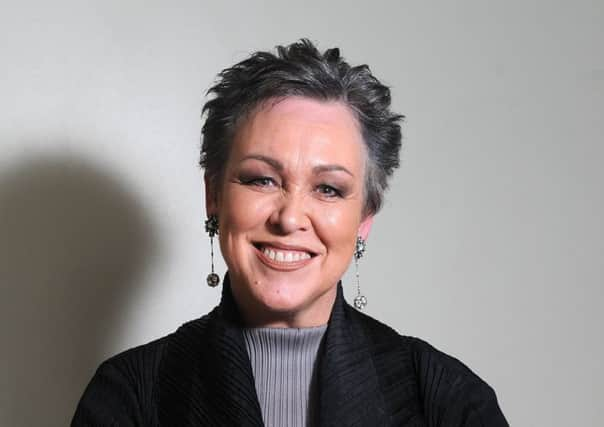Christa Ackroyd: Why a visit to Cambodia made me ashamed that I didn’t work harder at school


One that stands out was written in the lower sixth at my huge new comprehensive, an amalgam of two relatively successful single sex grammar schools into a garish new prefab with more than a thousand pupils and little soul.
The report in question suggested I would not pass any of the A-levels I needed to be a journalist. It went further.
Advertisement
Hide AdAdvertisement
Hide Ad“Christa must learn to manage her expectations when it comes to choosing a career as she will almost certainly fail.” Not that my careers teacher had any information on being a journalist, way out of the aspiration league for a Bradford comprehensive pupil in the 1970s. As I recall, the careers section in the school library had just three leaflets for girls – one on banking, one on teaching and the other on nursing, none of which remotely interested me. Much to the chagrin of my teachers I did pass, though when I went up to collect my English prize one did mutter under his breath: “This Christa just goes to prove there is no justice in the world.” And looking back he had a point. I could have worked harder, a lot harder. Being blessed with a near photographic memory coupled with a rush of adrenalin at the excitement of the examination room which later stood me in good stead for decades of live broadcasting, I didn’t exactly sail through, but I got the results I needed to join a local newspaper without a thought as to what I could have achieved if I had really knuckled down. And that is nothing to be proud of.
Last week I was forced to look back at what I so nearly messed up, at what I took for granted, on a visit to Cambodia. Working at our unassuming hotel were a group of young women (and men) for whom education is a gift never to be taken for granted. Education was banned under the brutal regime of the Khmer Rouge. In fact the first acts of genocide were committed on the teachers and the thinkers at exactly the same time I was conceitedly believing the world owed me a living. And that scraping through a few exams was good enough. Of a population of around seven million it’s estimated around half died as a result of murder, rebellion, genocide and deliberate starvation. Kim, one of our lovely smiling,charming, receptionists was the first in her family to complete an education. She was taught English by a foundation supported by charities who also funded her books and school uniform. Only 43 per cent per cent of children in Cambodia complete even a primary education. They drop out to work instead, many on the streets or in agriculture. Only a third go on to secondary school where class sizes are up to 80 such is the shortage of teachers. Only 20 per cent stay beyond the age of 15. Kim’s mum cannot read or write. She worked from the age of seven fishing for the Khmer Rouge. Widowed in her 30s, she took three jobs to feed her children. Her daughter now teaches English to street children in the little spare time she has and saves up to help her three younger siblings go to school too.
Julia, hasn’t finished her schooling but she works a full-time job at the hotel as well as going to class as she is saving up to go to university, rare in Cambodia, even rarer for girls. These girls have perfect English, perfect smiles and a perfect attitude. Their ambition brings you to tears. They consider themselves lucky, especially when they hear family stories, though rarely discussed, of those who disappeared, those who were fed gruel and 12 grains of rice while working a 16-hour day and those who survived by eating insects from the fields, an act in itself punishable by death. But they don’t know everything. The government is only now introducing the Killing Fields as part of the curriculum for those lucky enough to be able to study it. Many their age have no choice but to work in the fields still littered with land mines, only to lose limbs or their lives because they can’t afford an education or an alternative.
The hotel where Kim and Julia work and where we stayed is also a foundation to teach young men and women from poorer families the art of hospitality. They are obviously teaching them well. Our stay was too short but will live long in the memory. Cambodia was at war until 1999. It is its resilience and its new young population that make me ashamed of every school report which suggested I could have done better. What a gift I nearly threw away.